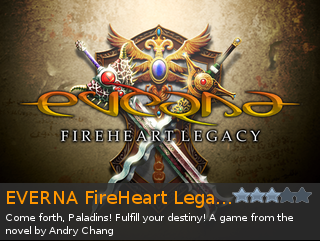Retrieved from:
http://www.lautanindonesia.com/forum/index.php/topic,458.0.html
Creating fantasy world
The Landscape. The landscape is vital as it dictates social structure and religion. This section also addresses how large (or detailed) the landscape should be for the size of the project (a trilogy demands a much larger landscape than a stand alone volume or a short story).
Where do you start? Draw a map! It is invariably the first thing I do when creating an entirely new world (or even when I place a tale within our world). If you can visualise your world, everything becomes so much easier.
How vast should your world, or map, be? How large and varied your landscape needs to be depends on how large and varied your plot will be:
• the more features, the more creatures, races, societies, religions you will be able to have.
• on the other hand, there is no point for either yourself or your reader if you have a very complex landscape for a minimalist plot (e.g my stand alone book Threshold) with little or no journeying about, few places mentioned, and where the action mainly stays in one spot or in one plot.
The natural world: together with the landscape, the seasons (weather, climate) will profoundly affect the peoples and story the author creates. Will your world have two moons, or just one? Will there be four months or twelve? What are the names of the months? Will you have northern hemisphere seasons, or southern? While all of this can be fun, if you're not going to have a plot that actively uses the landscape (i.e. have characters out and about) then you may not need to much of this.
On the other hand ... seasons and the natural world affect the type of society as well the type of religion your world will have.; more of this below.
Races, Societies and Creatures: some things to think about.
The creatures: how extensive (and how varied) a bestiary should you have? The animal (as vegetable life, for that matter) must suit the landscape.
Dragons might be out, but you can do a great deal with, for instance, creatures from classica mythl or medieval bestiary.
The races: how many different races, and just how different? There's little point in having a huge variety of races if neither landscape nor plot will support them. The tension within the book can come just as much from a clash between individuals or groups within the same society or race as much as between races. Be careful, as I mentioned above, not to get too carried away with race versus race in sheer black and white terms.
The society. Typically a pre-modern society must be primarily agricultural, non-educated, relatively poor (cashless economy) with a social and a religious aristocracy who control all power (economic, political, social and cultural) within the society. There must be a significant population o 'have-nots', for it is from the have-nots that the hero (or the hero's motivation) will emerge.
The nitty-gritty of life: how do people live in a pre-scientific world? How do they eat, work and construct their homes? How long does it take them to travel by foot, horse or barge? How far can a laden horse go in one day, anyway? Health, diet, utensils and so forth must always reflect the non-technological and scientific world in which that characters live.
Culture, particularly myths. Every culture and society is deeply affected by their myths, so the fantasy author must develop a rich mythological background for their world (and each race will have a different background) without overburdening their readers with boring and unnecessary details.
Religion, Magic and Language:
The religion is as important as the social structures, perhaps more so. Pre-modern and pre-scientific worlds are supernatural worlds, that is, the supernatural is used to explain the world and to get things done in the same way that science explains and achieves for us. Religion is affected by many things: the landscape, the variety of races populating the worlds, as their needs and lifestyles (the kind of religion a desert-based and trading people would vary significantly from that of a forest-dwelling, hunter and gatherer race), and the negatives of the particular world (those things which are perceived as evil or as uncontrollable).
You must also think about the accoutrements of religion- the festivals, mysteries, and services rendered etc. - as well as what type of priesthood you have for your religion, the hierarchy of the priesthood, and how much power within the society the preisthood has. Does this priestly power generate conflict? Or does it impart such comfort that the society could not function effectively without it?
The system of magic. Fantasy worlds are magical worlds, and generally have systems of magic that, as with the supernatural, are used as a means of getting things done. 'Magic' is as structured as religion, and it must reflect the landscape, society and religion within which it exists. What are you going to call your magicians? How is the magic accomplished? What is its power source? Are your magicians part of the priesthood, or separate from it (and perhaps even in conflict with the priesthood)?
Language. What words do people use? How do people count? Or swear? For example, most profanities are based around religious concepts, so the language (or the words the characters use) must reflect the world that has been created for them. As as example, you can't have characters in a different world going around swearing "by Christ" or "By the Devil!" , and you must even think about such common (and, we think, free of religious connotation) words such as bloody - which is merely a corruption of "By the Lady Mary!" (The Virgin Mary). The religion and gods you create will dictate your profanities.
--
Posted By Andry Chang to FireHeart - Exploring Worlds of Fantasy at 11/04/2008 07:37:00 AM





No comments:
Post a Comment